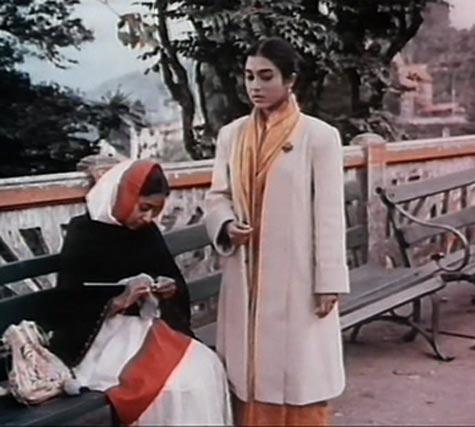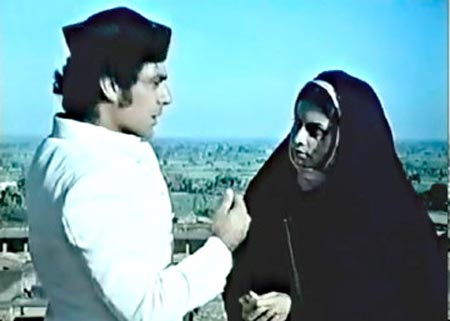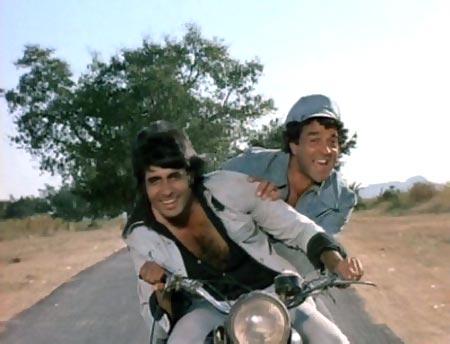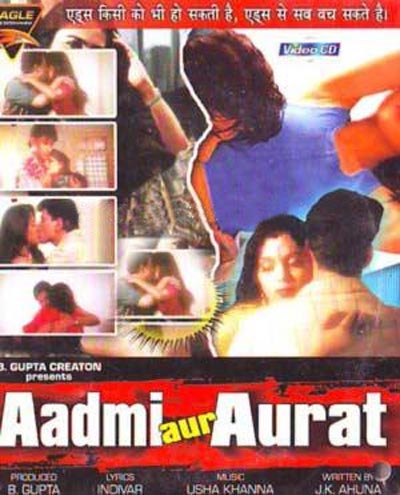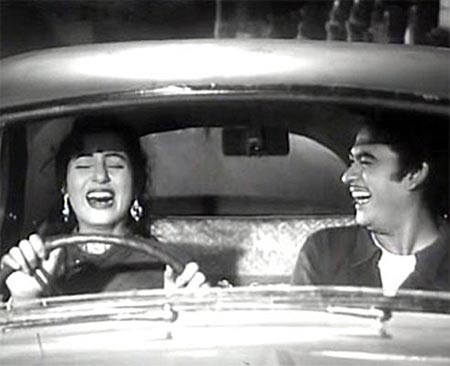 | « Back to article | Print this article |
100 years of cinema: Sandip Ray lists his top five films
As Indian cinema celebrates its centenary year, the great Satyajit Ray's son, Sandip Ray, a filmmaker in his own right, lists his favourite five films of all time. Take a look:
Kanchenjungha (1962)
Directed by Satyajit Ray
Language: Bengali
If we are to talk about Bengali films, Satyajit Ray is bound to come up. Among my father's films, there are many that I like. But my personal favourite is probably Kanchenjungha which, incidentally, is completing 50 years.
It is one of the few movies where film time and real time coincide. It was shot in 1962 and was perhaps ahead of its times and hence didn't do quite well at the box office. Each time I see it, I discover new things.
The film, which features a well-to-do Bengali family on vacation in Darjeeling and highlights the evolving relationships between the different characters, was so multi-layered. Even Satyajit Ray thought it was ahead of its time. It's a pity that apart from the lead actors (Arun Mukherjee and Alaknanda Ray), none of the stalwarts is alive.
We are planning a special screening to mark 50 years of the film.
Garm Hava (1973)
Directed by M S Sathyu
Language: Hindi/Urdu
It is a very moving, heart-rending and realistic movie that revolves around a North Indian Muslim family in the years after Partition.
The performances, especially by Balraj Sahni, were terrific. Balrajji was impeccable in the role of Salim. In fact, he was one of the favourite actors of the Ray family and my father (Satyajit Ray) really wanted to have him act in his movie. He was toying with the idea of making Rajsingha (a historical novel by Bankim Chandra Chattopadhyay) in the 1960s with Balraj Sahni, but it's a pity that it kind of fizzled out. He was a real admirer of Balrajji and the feeling was mutual.
(Garam Hava was based on an unpublished short story by Ismat Chugtai. The Central Board of Film Certification delayed the release of the film for eight months fearing communal unrest.)
Sholay (1975)
Directed by Ramesh Sippy
Langauge: Hindi
Apart from Bengali cinema, I used to watch a lot of Hindi films in my youth. One of the films in my list of favourites would undoubtedly be Sholay, a very gripping movie in terms of performances. When my father first saw the film, he said had it not been for the presence of the women in the film, it could have passed off as a John Ford movie.
Sholay was a complete entertainment package. Everything was perfect -- the script, performances and even the technical aspect. Amjad Khan's performance deserves a special mention. It was after watching him as Gabbar Singh that Baba (Ray) decided to cast him as Wajid Ali Shah in Shatranj Ke Khiladi (1977). Now what connect he found between Gabbar Singh and Wajid Ali Shah is beyond me. Only Satyajit Ray could have thought of that.
I remember watching Sholay in Bombay and at that point in time not many 70-mm prints came with stereophonic sound. Sholay did, and it was amazing. From a technical perspective, it was a mind-blowing experience.
(The film is to be re-released in 3-D this year.)
Aadmi Aur Aurat (1984)
Directed by Tapan Sinha
Language: Hindi
This story, written by Prafulla Roy, was terrifically shot. It is a very moving film created around a man and a woman who travel through the jungle. The performances of Mahua Roy Chowdhury and Amol Palekar were very touching, especially towards the end.
This is one of those films that never become dated. To me that's very important; films must have a lasting impact. I saw this telefilm some 20 years ago and liked it. Even today, it strikes a chord.
Chalti Ka Naam Gaadi (1958)
Directed by Satyen Bose
Language: Hindi
Among comedy films the one which comes foremost to my mind is Chalti Ka Naam Gaadi. I was very young when I first saw it, and then I saw it many more times. The three brothers (Kishore Kumar, Ashok Kumar and Anoop Kumar) and Satyenda were in top form.
The music by Sachin Dev Burman was also splendid.
I think I can safely say that it was one of the best comedies ever made.
(In 1974, Kishore Kumar directed a film named similar to this 1958 rip-roaring comedy and he called it Badhti Ka Naam Dadhi. The cast also included Ashok Kumar, I S Johar, K N Singh and Bappi Lahiri.)
